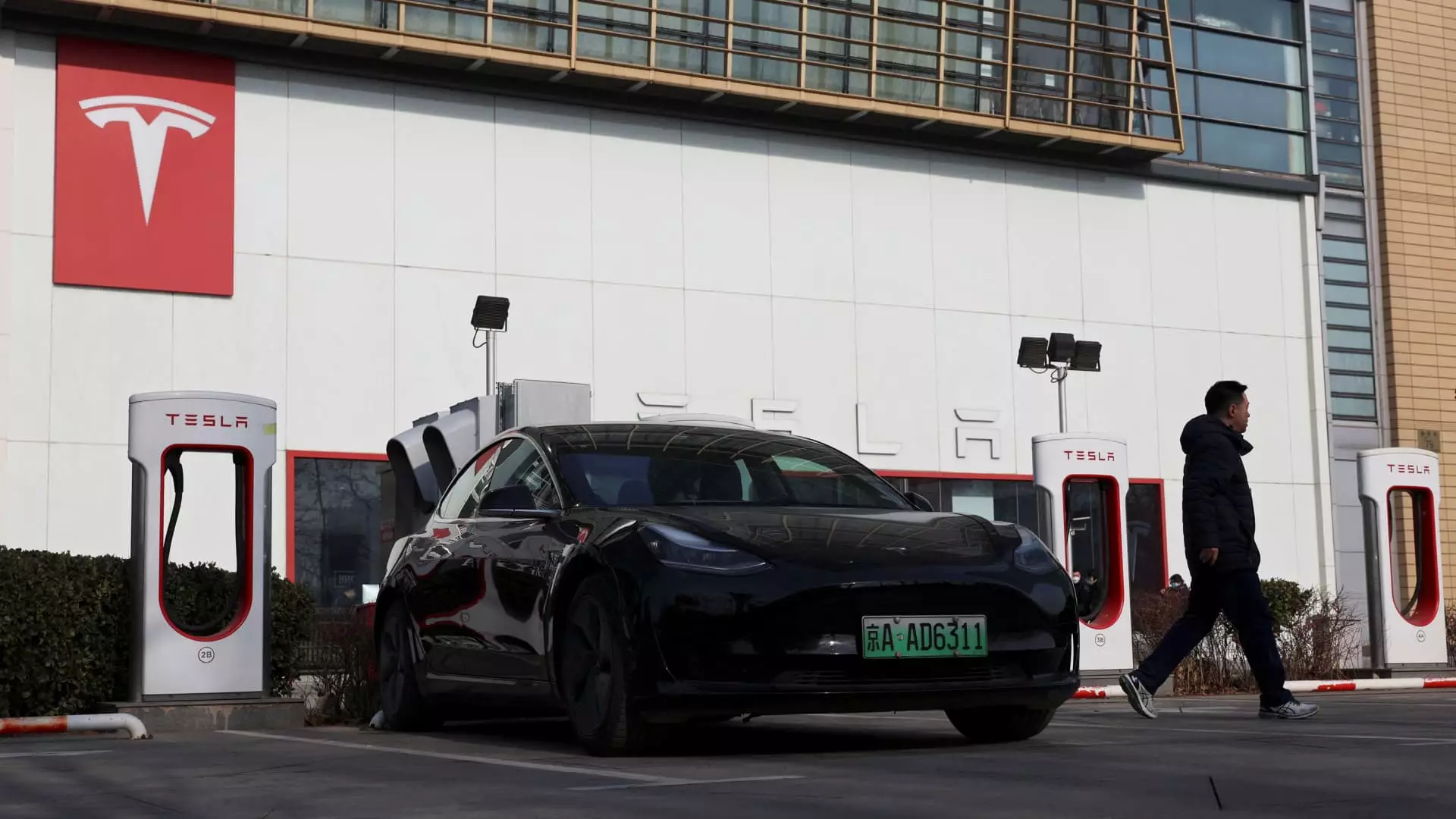As we move toward 2025, the landscape of China’s automotive industry is rapidly transforming, steering away from reliance on foreign automakers. The year 2024 may very well mark a significant turning point in which traditional foreign brands see diminishing influence, while local electric vehicle (EV) manufacturers like BYD and Geely solidify their dominance. Analyst insights, particularly from Nomura’s recent report, underscore the burgeoning strength of domestic players in a market that has swiftly transitioned toward new energy vehicles.
Nomura’s report highlights the impressive performance of BYD, which has already captured 16% of the Chinese auto market as of October 2023—a notable increase from 12% the previous year. The company’s successful strategy and innovative approach position it as a frontrunner, leaving international competitors grappling for relevance. With a “buy” rating and a price target that suggests a modest upside, BYD is increasingly seen as a safe investment as it continues to lead the charge in unit sales.
In the battle of electric vehicles, BYD has made headlines not just for its market share, but also for surpassing Tesla’s revenues for the first time in the third quarter of 2023. While Tesla maintains an edge in battery-only vehicles, the hybrid models of BYD have captured the attention of a broad consumer base, exemplifying a shift in consumer preferences.
The stark contrast between the sales trajectories of BYD and Tesla further highlights the evolving dynamics; while BYD has seen a staggering 67% sales increase, Tesla’s sales dipped by 4.3% in November. The report reveals an interesting observation: while Tesla’s premium pricing secures a particular market segment, it also limits its appeal in a country where affordability plays a crucial role in consumer decision-making.
Behind BYD, Geely stands as the second-largest player with an 8% market share. The firm’s resilience is illustrated by the raised price target from HSBC analysts, indicating strong expectations for growth as electric vehicle penetration in their portfolio is projected to hit 40%. Geely’s extensive brand roster—including Volvo and its U.S.-listed subsidiary, Zeekr—enables it to leverage multiple market segments, further strengthening its position.
Innovative new models and adaptations to consumer demands are expected to boost Geely’s sales significantly. Analysts anticipate growth upwards of 22% in the coming year, showcasing not only the sustainability of Geely as a competent contender but also the tightening grip of local brands on the market.
The transition to electric vehicles poses significant challenges for both domestic and foreign traditional automakers operating in China. General Motors’ recent announcements highlight the financial strains associated with restructuring its joint venture with SAIC Motor Corp, an indication of the costs incurred while adapting to a market that increasingly prioritizes new energy vehicles. Competing in this arena necessitates not just investment in manufacturing capabilities but also in innovation to keep pace with evolving consumer expectations.
This trend of declining performance isn’t isolated solely to GM; many brands struggle to adapt effectively. The diminishing market share for firms like SAIC GM Wuling reflects the broader systemic challenges faced by foreign enterprises in a landscape rapidly dominated by local offerings.
Among emerging players, startups have begun to carve out niches in the EV space, although they still represent a smaller fraction of the market when compared to giants like BYD. Partnerships and collaborations, such as those seen with companies like Huawei, demonstrate innovative strategies to capture market attention. With Huawei’s entry into the automotive sector focusing on technology integration rather than direct manufacturing, it provides additional avenues for growth for companies like Yongda, which operates multiple brands under its umbrella.
Investment analysts also see promise in newer companies, with firms like Leapmotor gaining attention for their efficient spending on research and development, contrasting starkly with the financial approaches seen in companies like Xpeng and Nio. This close examination of expenditures could be critical as the automotive market continues its rapid evolution, indicating a potential for sectors within the market to further differentiate themselves based on operational efficiency and innovation.
As we approach 2025, it is clear that the dominance of traditional foreign brands in China is waning, supplanted by local electric vehicle manufacturers that are proving their mettle. The data presented by financial analysts echoes a message of strong potential for firms like BYD and Geely while foreshadowing difficulties for automakers tethered to traditional combustion engines.
The electric vehicle revolution in China is not merely an automotive shift; it represents a broader transition in how society views mobility, sustainability, and innovation. As domestic manufacturers continue to innovate and adapt, they will play a pivotal role in shaping the future of the automotive industry, serving as a testament to resilience and adaptability in a rapidly changing global market.

